Review for Ruggles Of Red Gap: Dual Format Edition (Masters of Cinema)
Introduction
I still get the occasional unsolicited disc through the letterbox, which is usually the sort of b-movie that I would run a mile from, the odd straight to disc Steven Seagal or Luke Goss effort. Suffice it to say that said discs remain unwatched to this day. But once in a while a disc arrives, completely without warning, but as soon as I read the blurb, I realise that I'm compelled to review it, if only to broaden my cinematic horizons. That happened recently when the check discs for Ruggles of Red Gap, a film that I had never previously heard of, fell into my in-tray. Its fish out of water tale of a butler thrown out of his aristocratic servitude comfort zone put me in mind of The Admirable Crichton, but the film when I finally watched it, was a far more subtle and rewarding delight than that. Ruggles of Red Gap was quite the mass media hit at the start of the twentieth century, a novel that spawned theatre productions, a Broadway musical, and prior to this feature film with Charles Laughton, two silent movies made in 1918 and 1923. Eureka Entertainment now bring this 1935 film to dual format Blu-ray and DVD as part of their Masters of Cinema range. I took a look at the Blu-ray disc for this review.
Ruggles is the quintessential English butler, a gentleman's gentleman from a family of such servants and who has devoted his career to ensuring that his master, The Earl of Burnstead is never less than appropriately presentable. That doesn't stop the Earl of Burnstead losing Ruggles' service in a game of poker. The victor, and Ruggles' new employer is Egbert Floud, a wealthy businessman from Washington State in the US, whose family are among the new wave of nouveau riche. In particular Egbert's wife Effie is looking for a servant who can civilise her crass and wayward husband. So it is that Ruggles has to up sticks from Paris and travel to the up and coming 'city' of Red Gap in the barbarous United States, where he is to 'educate' his new master. But in the land of the free, where all men are guaranteed as equal in the constitution, it may be that Ruggles has more to learn than he has to teach.
Picture
Ruggles of Red Gap is presented in the original aspect ratio of 1.37:1 in monochrome at 1080p. It's really a quite splendid image, and it's clear that some effort has been made in restoring it. Certainly I could see no signs of print damage or significant age. That said, there is a degree of softness to the image at times, the film does have an inconstant flicker to it, and a rich layer of grain permeates the film. The detail is impressive, and with the good contrast levels, it makes for a rich and interesting viewing experience.
The images in this review are sourced from the PR, and aren't necessarily representative of the final retail disc.
Sound
The main audio track is a DTS-HD MA 2.0 English track, which I assume is mono. Again, it's an audio track that has had a lot of care and attention applied to it. It is representative of the audio of the films of the period in terms of its range and fidelity, but it's also absent of any hiss, pop or crackle that would indicate that it has been worn out over the years. It could have been recorded yesterday. The dialogue is flawlessly clear throughout, but should you need them, SDH subtitles are available.
Extras
As with all of the Masters of Cinema releases, Ruggles of Red Gap gets some extra care and attention, and not just in terms of audio and video quality. This is a two disc, dual format collection, and while I didn't watch the DVD all the way through, I can tell you that it gets an NTSC transfer, with DD 2.0 audio, and the same extra features are repeated across both discs.
By kind courtesy of Eureka Entertainment, I got to read a PDF file, but you should find a 32 page booklet in this collection, which features a detailed essay by Dan Salitt, analysing how director Leo McCarey worked, and how he applied his trademark techniques, honed in silent comedies with Laurel and Hardy, and Charley Chase, to Ruggles of Red Gap.
While the booklet focuses on the director, on the disc, you'll find a very informative interview with Charles Laughton's biographer, Simon Callow, which fills in the background of the star of the film. It's a very interesting piece that offers much about Laughton's life, and how he approached playing the quintessential English Butler for a very American audience. There's a lot to learn here, and I'm surprised that it's only 17 minutes long.
After the film was released, Ruggles of Red Gap was recreated on occasion for radio theatre plays, and this disc gathers 3 of these recordings which feature the film's stars, Charles Laughton and Charlie Ruggles for you to enjoy. They are presented in LPCM 2.0, and unlike the film, age is apparent in these recordings.
Lux Radio Theatre, July 10 1939 - 57:19
Screen Guild Theatre. Dec 17 1945 - 29: 55
Academy Award Theatre, June 8 1946 - 31:35
There is also a recording of Charles Laughton's recitation of the Gettysburg Address, a key moment in the film released separately as a 78rpm recording. This lasts 2:11.
Finally you can watch the film with just the music and effects track.
Conclusion
Ruggles of Red Gap is really quite an appealing film, a gentle comedy with an empowering message at its heart. It's a tale of emancipation, with a rather prim and proper butler, the man who finds freedom through totally unexpected means, when he is 'lost' to a rather crass and overbearing American. The humour comes in the culture clash between Old and New Worlds, with preconceptions and prejudices challenged by reality and experience. Ruggles' vision of the US is one of cowboys and Indians, gunfights and stagecoaches, whereas the reality of up and coming Red Gap is far more civilised and recognisable, even if the free-natured enthusiasm of its inhabitants is a world away from the restrained gentility of Paris and his social circle. But it's through encountering this world, and seeing his own world reflected in their eyes that Ruggles begins to learn of the delights of independence and self determination.
The film begins by setting the rules of the butler master relationship and introducing us to the world-weary Ruggles stirring his master, the Earl of Burnstead from his slumber following a night of gambling. It becomes clear that while the master is the Earl, control has to be surrendered to the butler when it comes to matters of propriety and maintaining one's social standing. The master has to defer to the servant at times in the matters of dress, dining, and comportment, and it seems that both are in servitude to the other. That changes as soon as Ruggles meets his new employers, both of whom initially live down to Ruggles' expectations of Americans. Egbert Floud is loud and overbearing. He's also exuberant, vivacious and lively, and he refuses down to his marrow to believe that any man can be subservient to another. His wife Effie on the other hand is one of the nouveau riche, and insists on Ruggles civilising her husband. As you would expect with the nouveau riche, she overcompensates completely, and in turn becomes just as overbearing as her husband, although not nearly as likeable. Initially she and Ruggles seem most simpatico, as they collude in trying to change Egbert's outlook. It's when Egbert manages to get Ruggles to loosen up for a moment, introducing him to whisky and soda, that Ruggles begins to see the other point of view.
When they return to America, Ruggles starts to see the master servant relationship differently when he meets the rest of the Floud family. Egbert and his mother in law are salt of the earth people, but Effie and the circles she moves in are trying to emulate the aristocracy of Europe, and that reflection makes the inequities more obvious. That's amplified when a case of mistaken identity establishes Ruggles as a person of significance, and all of a sudden he is centre stage instead of watching from the sidelines. Being thought of as someone in his own right finally changes everything for Ruggles.
It's a charming performance from Charles Laughton that carries the film, and he imbues the character of Ruggles with a delightful and understated sense of mischief, heightened by director McCarey's comic touch. Charlie Ruggles as Egbert Floud matches Laughton on screen for energy and vitality, and the film feels very light and improvisational as a result. Witty dialogue and character comedy make for some very memorable moments in this film, and its entertainment value is unmistakable. Its message is subtle but strong, and the idea that the outsider looking in can see things that others take for granted is very compelling. When Ruggles sees his life in domestic servitude from the perspective of Egbert Floud, his world begins to change. It's one of the film's defining moments when he returns the favour, displaying an appreciation, and fundamental understanding of the words of Abraham Lincoln in the Gettysburg Address, which the folks of Red Gap can't even recall.
Ruggles of Red Gap is a gem of early twentieth century cinema, and this Masters of Cinema release of it does the film fine justice. It's well worth picking up.
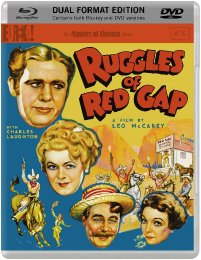
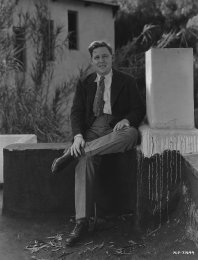
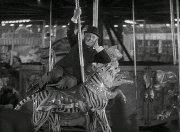
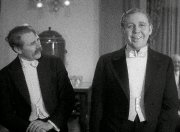
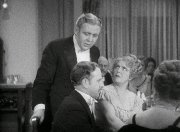
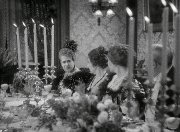
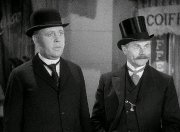
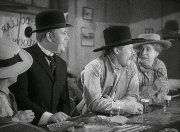
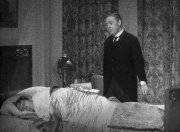
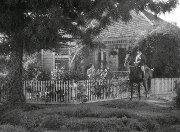
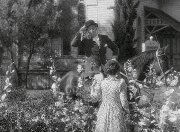









































Your Opinions and Comments
Be the first to post a comment!